SCALP CARE
Afro scalp care
Scalp care remains a hot topic, but it’s worth noting that Afro hair has specific needs. Here, we’ve enlisted the help of the experts to share their tips for your textured hair clients
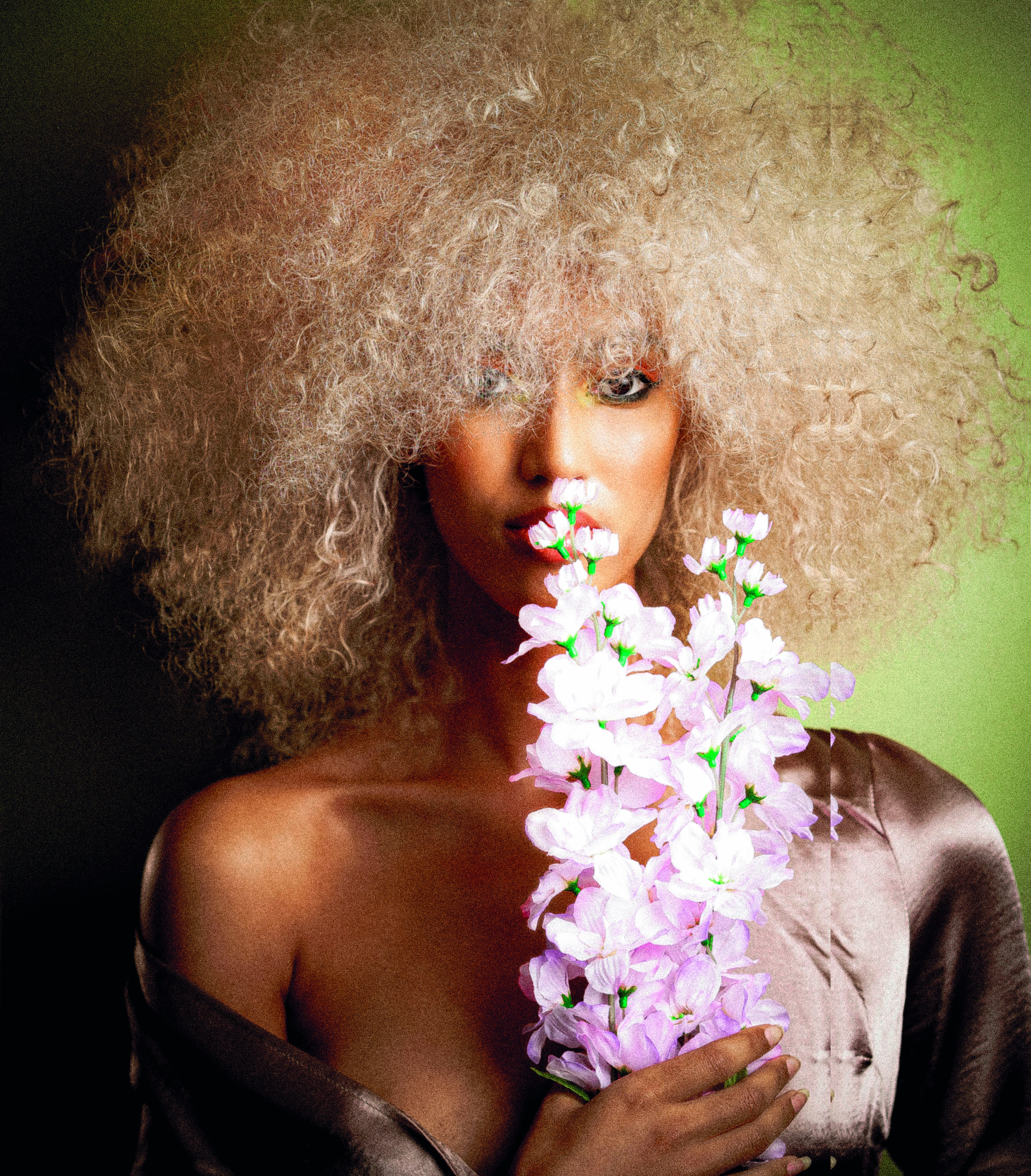
TIM SCOTT-WRIGHT
“Afro-textured hair isn’t more prone to scalp conditions than any other texture. Protective styles are what can cause conditions like dandruff and excess build-up,” points out amika global artistic director Naeemah LaFond. With that being said, she explains the key is maintenance and not necessarily treatment, unless there is a medical condition. “For proper scalp maintenance between protective styles my go-to product is the amika Reset Exfoliating Scalp Jelly. It creates a clean canvas after removing braids, weaves or wigs, so that unwanted oils, dirt and build-up are removed to ensure the health of the scalp is a priority between those protective style installs.”
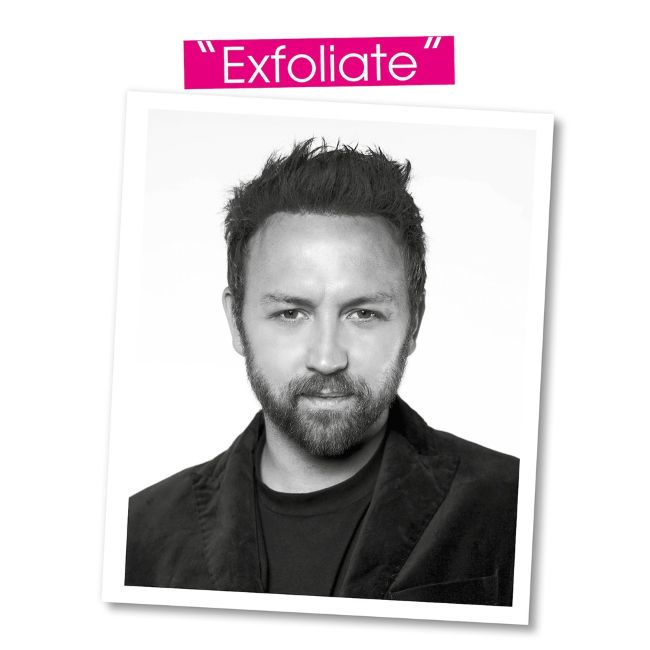
“Afro hair is a lot denser near the scalp so it’s often the case that clients with textured hair will experience scalp conditions,” explains Tim Scott-Wright, Schwarzkopf Professional ambassador. “Scalp Genesis Soothing Shampoo by Schwarzkopf Professional is my reach-for recommendation. It is a great shampoo to use on any sensitive scalp. Simply massage in and allow it to ‘do its thing’ for five minutes before rinsing,” he says. “It’s good to give the scalp an exfoliating shampoo once in a while. Schwarzkopf Professional’s BC range has an exfoliating in-salon treatment, which is ideal for removing any unwanted left-over residue on the scalp from oily ingredients that are often found in Afro hair products.”
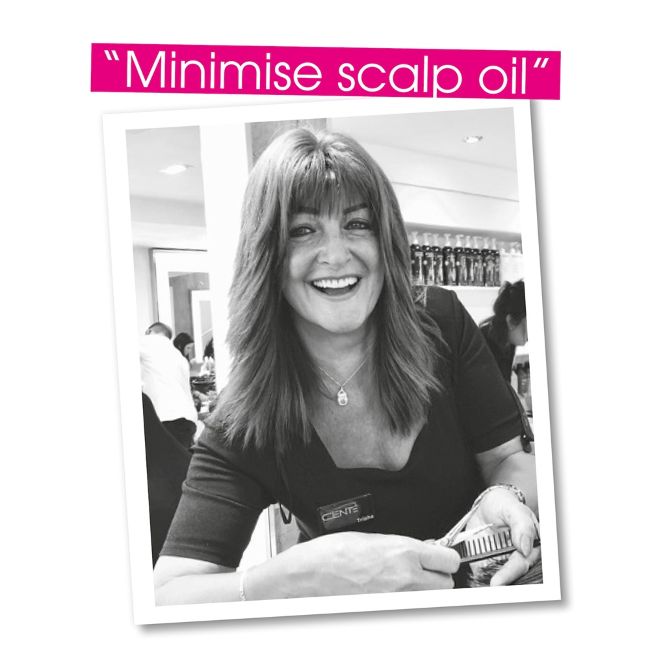
“Maintaining Afro hair in its optimum condition with a healthy scalp is key. Moisture is the most important substance for Afro hair,” states Trisha Buller MIT SRSH, senior consultant trichologist and Goldwell ambassador. “Due to the high maintenance of Afro hair, it tends to be shampooed far less than it should be. This can lead to scalp dryness and an itchy scalp. Scratching the scalp can lead to secondary scalp infections which, if untreated, could lead to hair loss. The itch scratch cycle is a vicious circle,” she adds. “So many individuals believe massaging oil into the scalp will help to relieve scalp dryness. However, this could also exacerbate scalp issues such as causing serious scalp problems and possible hair loss.”
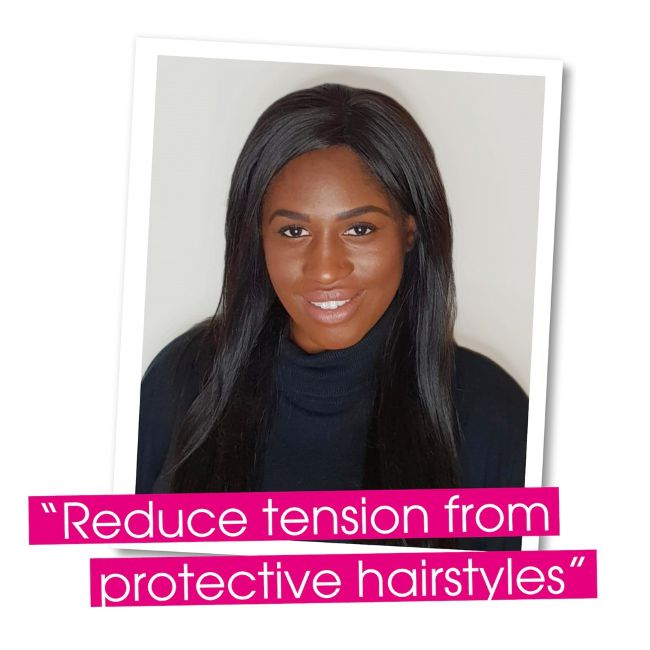
“Traction alopecia is a very common scalp condition amongst women with Afro hair,” explains Abigail Butler, guest artist for L’Oréal Professionnel. “The cause of this can come from tightly pulled hairstyles, braids and weaves, which can put a strain on the hair. The best solution is to suggest alternative styles for your clients which reduce tension on the hairline,” she says. “Be gentle when handling Afro hair and try giving it a break with natural protective styles such as loose braids, cornrows and weaves. Wigs are a great alternative as well. You should also advise your client to do daily head massages, particularly in any areas of hair loss to help stimulate growth.”
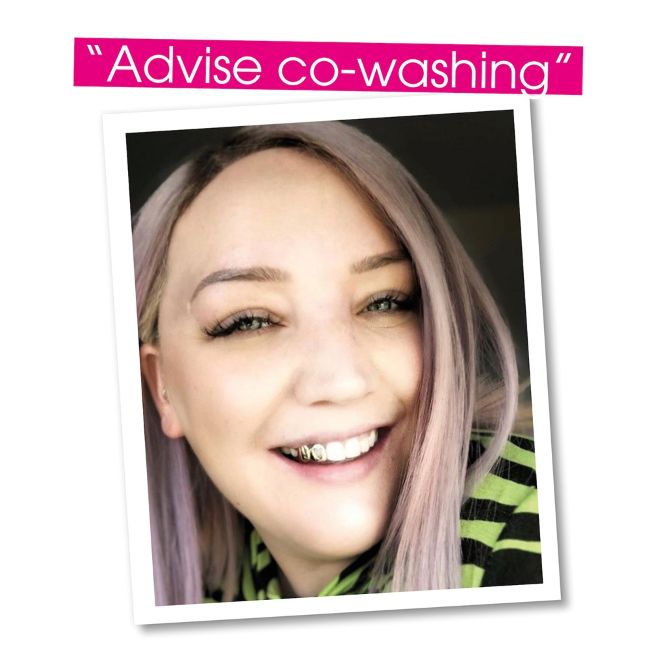
“With Afro hair the scalp can become dry and itchy from over-washing the hair. Plus, stripping the a hair of its natural oils can cause dry scalps,” explains Lisa Farrall, Matrix ambassador UK & Ireland. “I always recommend co-washing the hair (the act of forgoing shampoo and washing hair solely with conditioner) and always putting the moisture back into the hair after a wash service. Scalp treatments are a great add-on service in the salon that help with many problems, not just with dry hair, but also with a dry scalp,” she says.
Adele Clarke, OSMO IKON brand ambassador says if a build-up of products, dandruff or oils is present in Afro hair, use the new OSMO Scalp Therapy Detoxify Shampoo to reboot the hair and scalp. “Combining rosemary, tea tree oil, jojoba and wheat germ, you can rest assured that whilst giving your client a clean clear base to go forward with their styling, you won’t be overstripping or drying out their hair.”
“An out-of-balance scalp microbiome can affect hair growth and result in dry, brittle and fragile hair,” says Mark Leeson, Revlon Professional global artistic ambassador. “To keep hair in top condition it’s essential to use a product range that respects the scalp microbiome without stripping away its natural defences. I love the Revlon Professional RE/START Clay Scalp Mask, which has been designed to work in harmony with the microbiome. It’s gentle but aids the purification of the scalp removing product build-up and dead skin cells which can affect the health of the scalp,” he says.
FOR AFRO CLIENTS WITH THINNING HAIR
Paul Mitchell Scalp Care Anti-Thinning Tonic (available at salon-success.co.uk) is a twice-daily spray that creates an optima l scalp environment for hair density and encourages healthy hair growth.
“Some products can be really rich in perfume which can aggravate the scalp. Some products also have a richer and heavier texture which is harder to rinse out,” points out Pete Burkill, SACHAJUAN UK brand ambassador. “With dandruff, it can quite often be a problem of not rinsing products out thoroughly. For example, if your Afro client has been using a curl cream that’s really concentrated and they’re applying it close to the scalp, it’s really important that they’re fully cleansing that off the scalp when they wash their hair.” Suggest SACHAJUAN Scalp Scrub to thoroughly cleanse the scalp of build-up.
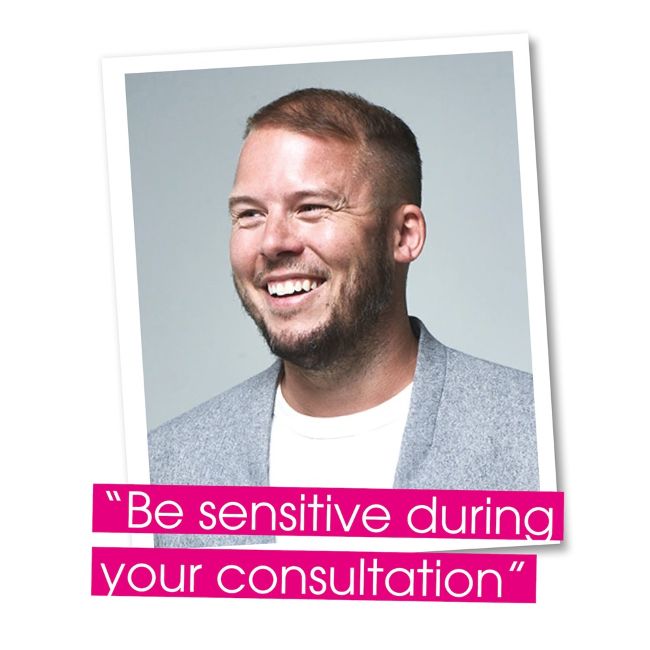
“Scalp conditions can affect everyone, regardless of hair texture. A common scalp problem is folliculitis, which is an inflammation or infection of the hair follicles and it can be made worse if you scratch it. It can cause a secondary infection that’s likely to be itchy and uncomfortable,” says Wella Professionals ambassador and trichologist Robert Eaton. “In that instance I recommend clients use a topical cream to calm the scalp and break the itch-scratch cycle. A qualified trichologist will always be able to prescribe medicated products that aren’t available in salons,” he advises. “When consulting with your client it’s really important to be discrete and sensitive – they’re likely to be quite self-conscious and nervous,” he adds. “Take your time to listen to their worries and concerns so you can identify what’s causing the condition. You should also wear gloves during the consultation as it’s possible the client’s scalp will be infected and inflamed.”
THE PERSONALISED CONSULTATION
It is vital to give each client a personalised consultation about their scalp and hair loss issues as no two cases are the same. “Some of the most common symptoms of a scalp condition are weak hair and breakage, as well as hair loss or thinning,” says Joana Neves, editorial director at ALTERNA. “It is not exclusively a gender, hair type or age-related issue. In fact, two thirds of men will experience hair loss and fewer than 45% of women go through life with a full head of hair. Hair loss can be genetic or reactive – as a result of stress, illness, nutrient defi ciencies, weight loss, hormonal imbalance and how the hair is treated,” she explains.